The Proverbs of Hell 17/39: Takiawase
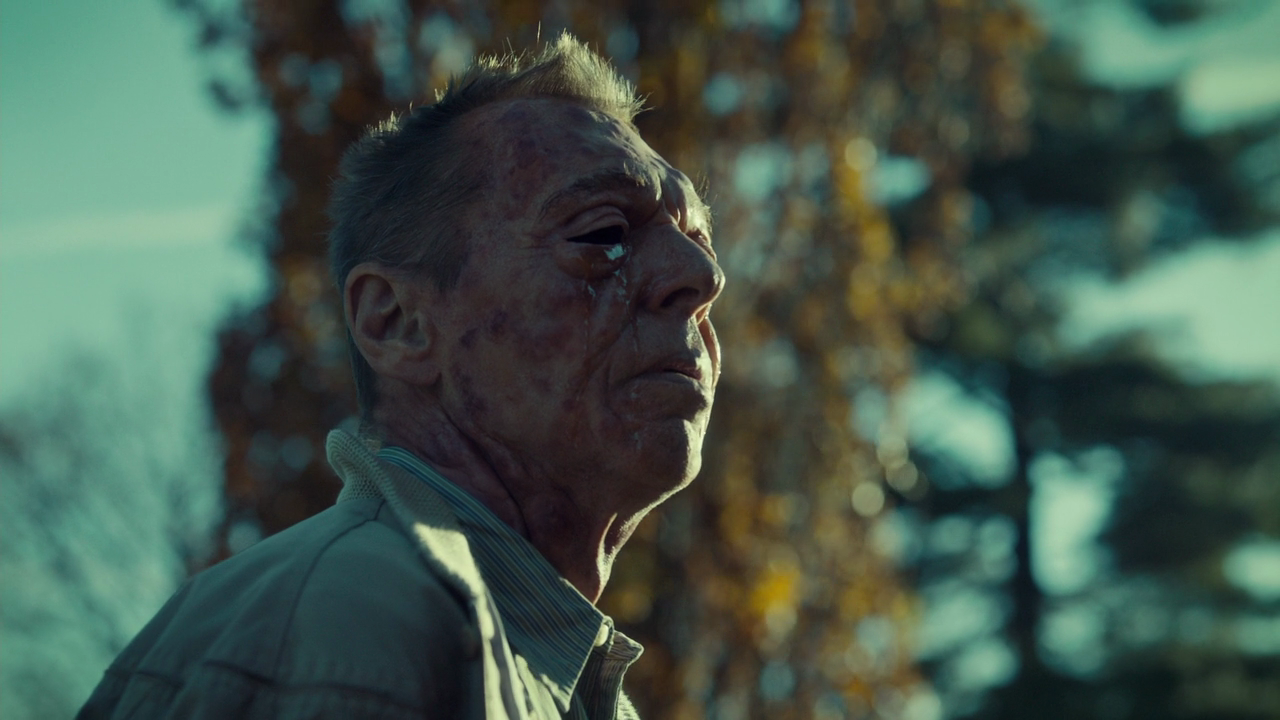 \TAKIAWASE: A mixture of vegetables and a protein in which the ingredients are cooked separately; on the whole a fair description of an episode in which the characters are unusually segregated.
\TAKIAWASE: A mixture of vegetables and a protein in which the ingredients are cooked separately; on the whole a fair description of an episode in which the characters are unusually segregated.
WILL GRAHAM: Your father taught you how to hunt. I’m going to teach you how to fish.
ABIGAIL HOBBS: Same thing, isn’t it? One you lure, the other you stalk?
WILL GRAHAM: One you catch, the other you shoot.
Will makes a second attempt at the hunting/fishing conversation that went so unsatisfyingly in “Relevés.” This time, instead of becoming obsessed with accusing Abigail, he comes up with a suitably witty retort to her comparison. Although the difference between catching and shooting is likely academic to the fish.
WILL GRAHAM: Last thing before casting a line: name the bait on your hook after somebody you cherished.
ABIGAIL HOBBS: So you can say good-bye?
WILL GRAHAM: If the person you name it after cherished you, as the superstition goes, you’ll catch the fish.
ABIGAIL HOBBS: What did you name it?
WILL GRAHAM: Abigail.
It’s an interesting and quietly revealing character beat that Will stakes his successful catching of Hannibal on the question of whether Abigail cherished him. Not least because it’s very difficult to construct a credible argument for an answer other than “not nearly as much as she did Hannibal.”
BEVERLY KATZ: Hannibal Lecter has no reason–
WILL GRAHAM: That’s exactly right. He has no discernible reason other than his own amusement and curiosity.
BEVERLY KATZ: That’s hard to prove.
WILL GRAHAM: Whimsy. That’s how you’ll catch him. There will be a very clever detail to find on James Gray. He wouldn’t be able to resist. Something that’s probably been overlooked. Something hidden.
BEVERLY KATZ: I’ll look for clever details. But I’m not looking for Hannibal.
One of the purest instances of aesthetics being used as investigation techniques. It’s not even the relatively cliche aesthetic principle of Hannibal’s need to prove his superiority. Instead it comes out of his basic love of dramatic irony – the same thing that leads him to stitch the muralist into the center of his own design or to kill the judge in a way that comments on the flaws of his jurisprudence.
A straight-up killer of the week, but one that serves in most regards to highlight the rapidity with which returns are diminishing on that front. Its main appeal is this visual of a body that is partially other, and specifically partially an object of nature. But this is visibly just the mushroom people from “Amuse-Bouche” done with bees instead. Meanwhile, the case in general is completely segregated from the other plots – neither Will nor Hannibal do any work on it, and its only direct contribution to the plot at large is that an offhand comment that inspires Beverly, who literally pops her head into this plot just to hear that comment. For the most part, this just seems to be here to check a box. The box is certainly checked, but it’s tough to say more than that.
DR. CHILTON: What about Dr. Lecter?
WILL GRAHAM: Shouldn’t you be my one and only psychiatrist, Dr. Chilton?
DR. CHILTON: Ideally.
WILL GRAHAM: Now about your “that” for my “this.” Do not discuss me or my therapy with Hannibal Lecter. Tell him you’ve decided I’m no longer any of his business. I’m now under your exclusive care.
Will’s manipulation of Chilton is made considerably funnier by the repeated scenes of Will ignoring him and going fishing in his mind in previous episodes, a detail that emphasizes the degree to which there is no content to Will’s dialogue here beyond using Chilton. But in this regard the biggest praise ought be directed to Raul Esparza, who plays Chilton being manipulated with perfect dickbaggery.
BELLA CRAWFORD: Lazarus had it good. My social circle doesn’t include a friend with power over death. I suppose I should’ve embraced Facebook while I had the chance.
The image that Bella and Hannibal are looking at is is Rembrandt’s The Raising of Lazarus. Blake also did a treatment of the subject in the same series of Bible illustrations as The Great Red Dragon and the Woman Clothed in Sun, but the Aberdeen Art Gallery, which owns it, has not made a good quality copy available online, a decision for which I have faith Hannibal would eat them.
BELLA CRAWFORD: My veins have collapsed. I’m vomiting my stomach lining. On a good day, I sleep fifteen to eighteen hours. On a bad day, I don’t sleep. My best-case scenario is prolonged pain management.
HANNIBAL: Jack will help you manage. He loves you and when you are gone, he will feel your silence like a draft.
BELLA CRAWFORD: My silence is inevitable. The war is over. Cancer is an occupying force. I want to surrender. While I still have my dignity.
If “silence like a draft” pinged your “that sounds like a line pilfered from Thomas Harris” detectors, well done. But if you guessed its context, describing Miggs’s empty cell in Silence of the Lambs after Hannibal manipulates him into swallowing his tongue, then I’m thoroughly impressed.
BELLA CRAWFORD: Suicide seems like a valid solution to my problem.
HANNIBAL: How does that make you feel?
BELLA CRAWFORD: Alive. How does that make you feel?
HANNIBAL: I’ve always found the idea of death comforting. The thought that my life could end at any moment frees me to fully appreciate the beauty, art and horror of everything this world has to offer.
This is possibly the most honest and open Hannibal has ever been in the series – a startlingly frank admission of his aesthetic philosophy. His fascination with death has been established before – consider his line “I think of my earliest memory and project forward to what I imagine will be my death. I never think about living beyond that span of time. Except by reputation” in “Savoureux.” But the explicit citation of mortality as the underpinning of his hedonism and the triptych of beauty, art, and horror is an appreciably more detailed picture.
The sequence of Will going under should be fantastic – a smooth and breathtaking transition from the mundane world to its psychic counterpart. Instead it looks inexplicably cheap, the ways in which it’s just flashing lights in a television studio unduly visible. As it’s unlikely that the sequence was actually made on the cheap (it’s generally not as though Hannibal’s hallucinatory instincts are particularly expensive), the blame would seem to fall on director David Semel, who notably does not make a return to the series. (For those who really want to be dishy – and what other way would we be in blogging Hannibal – one of the big conflicts Fuller had with CBS on Star Trek Discovery was apparently the hiring of Semel to direct the pilot.)
WILL GRAHAM: He was inducing seizures. That’s how he created the blackouts. The lost time. It was strategic. Planned.
DR. CHILTON: You would only see a seizure response in a brain afflicted with photosensitive epilepsy.
WILL GRAHAM: Or afflicted with something just as damaging. Like encephalitis.
DR. CHILTON: That would suggest a radically unorthodox form of therapy.
WILL GRAHAM: Yes, it would.
Will’s game with Chilton yields results, although not ones of any particular utility (nothing recovered here being more convincing than the memory he recovered back in “Kaisecki.” Still, the particulars of Chilton’s being won over to Will’s side and the deadpan of his “radically unorthodox” line here are both delightful, if only because it’s relatively novel to see Chilton in the position of actually being useful to anybody.
DR. CHILTON: Dr. Lecter. I am so embarrassed. Didn’t get my message? I canceled your appointment with Will Graham.
HANNIBAL: Is everything all right?
DR. CHILTON: I can explain. Shall we? Will’s at a delicate place in his therapy. I don’t want to confuse him any more than he already is.
Chilton, of course, immediately fucks it up by doing the exact thing Will asked him not to do. Was this Will’s intention, though? If so, it’s difficult to see what his game was. There seems little benefit to Will from Hannibal knowing what he knows. On the other hand, it’s hard to imagine that Hannibal wouldn’t figure out what being frozen out by Chilton implies, so there’s no particular reason why Chilton’s lack of discretion would be a worse situation either. Indeed, the closer one looks the harder it becomes to figure out why Will made this demand of Chilton in the first place.
JACK CRAWFORD: Last time I did this, this wasn’t the way you did this.
BELLA CRAWFORD: A vaporizer. Easier on my lungs. The young man at the dispensary called this “Purple Kush.” He told me all his cancer patients love its “deep-body stone.”
JACK CRAWFORD: You have a marijuana sommelier?
BELLA CRAWFORD: Yes. Don’t they still drug test you?
JACK CRAWFORD: I’m supporting my wife.
This scene continues the strong track record of utterly beautiful Jack/Bella scenes, both with the conceit of Jack getting stoned with his wife and the subsequent conversation about death and memory. The central conflict of these scenes, which hinges entirely on the fact that Jack and Bella love each other but are necessarily going to have irrevocably different experiences of Bella’s death, is essentially perfect – each character is utterly sympathetic, and yet there’s literally no good way forward for them.
One fundamental problem of the Will-in-prison half of the season (the back half having its own issues) is that the show has to make drama out of Will catching up with things the audience already knows. The approach used for this sequence, namely literally restaging a previous scene with Will as a spectral witness, seems like it shouldn’t work, and yet it does. Part of this is that the scene returned to is a meaty one that Will was actually there for, so there’s a sense of a wrong being righted. Part of it is also just that you can always get away with it a little easier when you’ve got a strong visual.
BEVERLY KATZ: The Chesapeake Ripper kept surgical trophies. If Hannibal’s the Ripper, what’s he doing with his trophies?
WILL GRAHAM: He’s eating them.
This, on the other hand, falls oddly and unexpectedly flat for what is on the surface a much bigger realization. The fact that Hannibal was not only the copycat killer but the Chesapeake Ripper was not something Will knew without knowing he knew – it’s a major piece of information that Will is the first one to obtain. But it’s something the audience already knew that’s delivered in dialogue where the more immediately interesting thing is Beverly getting onto Hannibal’s trail at all, and so as a major dramatic beat (which it’s made to be via the flashbacks to Hannibal feeding Cassie Boyle to Will) it falls unfortunately short.
KATHERINE PIMMS: I can’t make the pain go away, but I can make it so it doesn’t matter. I protected them. I protected these people from hopelessness. And that’s beautiful.
As claims about the aesthetics of one’s art murders go, Katherine’s is one of the more defensible in the series. She’s right, at least, that offering peaceful, painless deaths surrounded by nature is an act of beauty. Her contention that non-consensually lobotomizing people and dumping them in parks is an acceptable way of doing this is, of course, pretty fucked up.
As scripted this scene was considerably stupider, with Jack growling some bullshit about how she won’t be able to help people where she’s going. Instead the script lets her case stand on its own merits and flaws, which strengthens its thematic parallels with Bella’s plot.
A middling episode ends intriguingly with two contrasting acts of cruelty on Hannibal’s part. This one is in all important regards (which is to say aesthetic ones) the crueler: he saves Bella from her deliberate overdose, effectively condemning her to die of her cancer instead of with the peace and dignity she sought. Worse, he does so out of, as Will would put it, whimsy, flipping a coin to make the decision. (Fuller, in interviews, suggests that it is strategic, to keep Jack off his game, but it is not as though the death of his wife would not also accomplish that, and it’s difficult to square away with the coin flip.) This apparent indifference to his course of action seems jarring in the context of what has seemed like his genuine regard for Bella. Simply put, it’s cruel in a way that doesn’t seem baked into the equation with Hannibal.
His other main act of cruelty, on the other hand, is entirely inevitable – literally the only thing that could possibly happen under the circumstances. In dramatic terms, the fact that Beverly is a characer in a horror narrative who has just gone down to the basement after being told not to puts limits on the degree to which the audience can sympathize with her, especially given that we don’t really want Hannibal to be caught because then the story’s over. The curious result is that murdering Beverly feels far less wrong and upsetting than not allowing Bella to die – a bit of perversity that almost redeems an otherwise awkward episode.
We’ll address the gendered nature of Beverly’s fate next week, of course, once her body’s nice and cold.

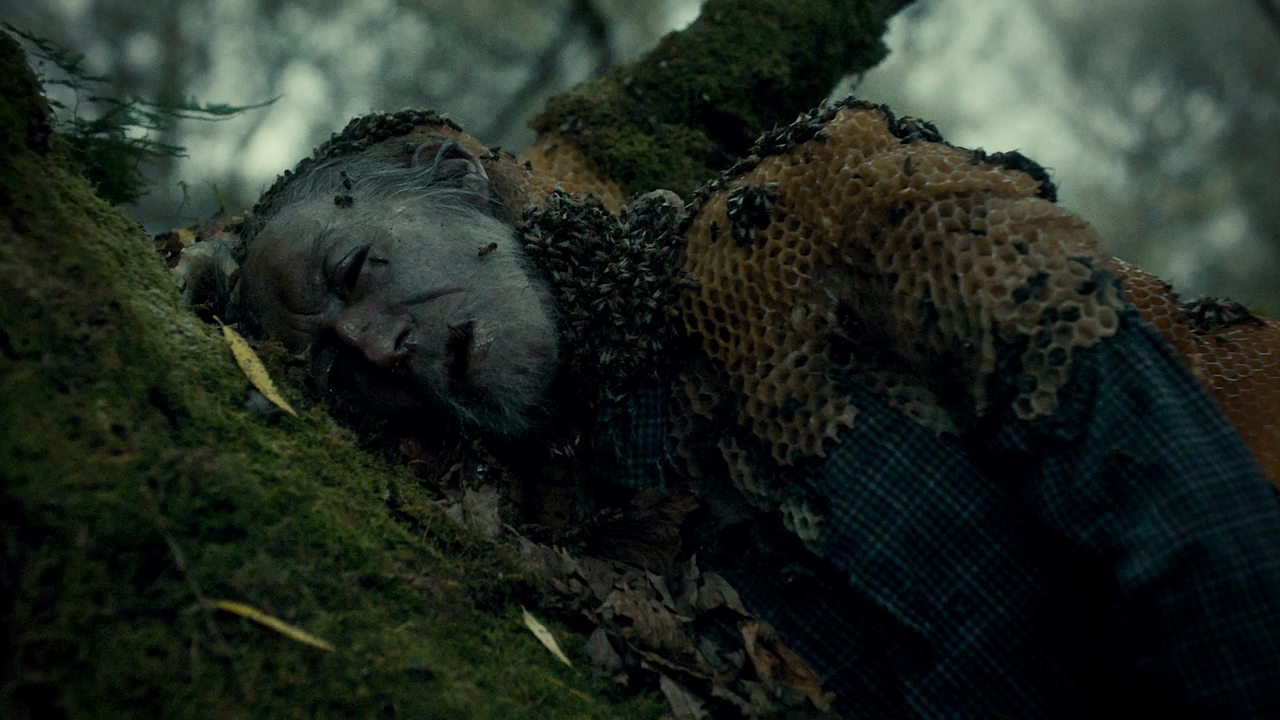
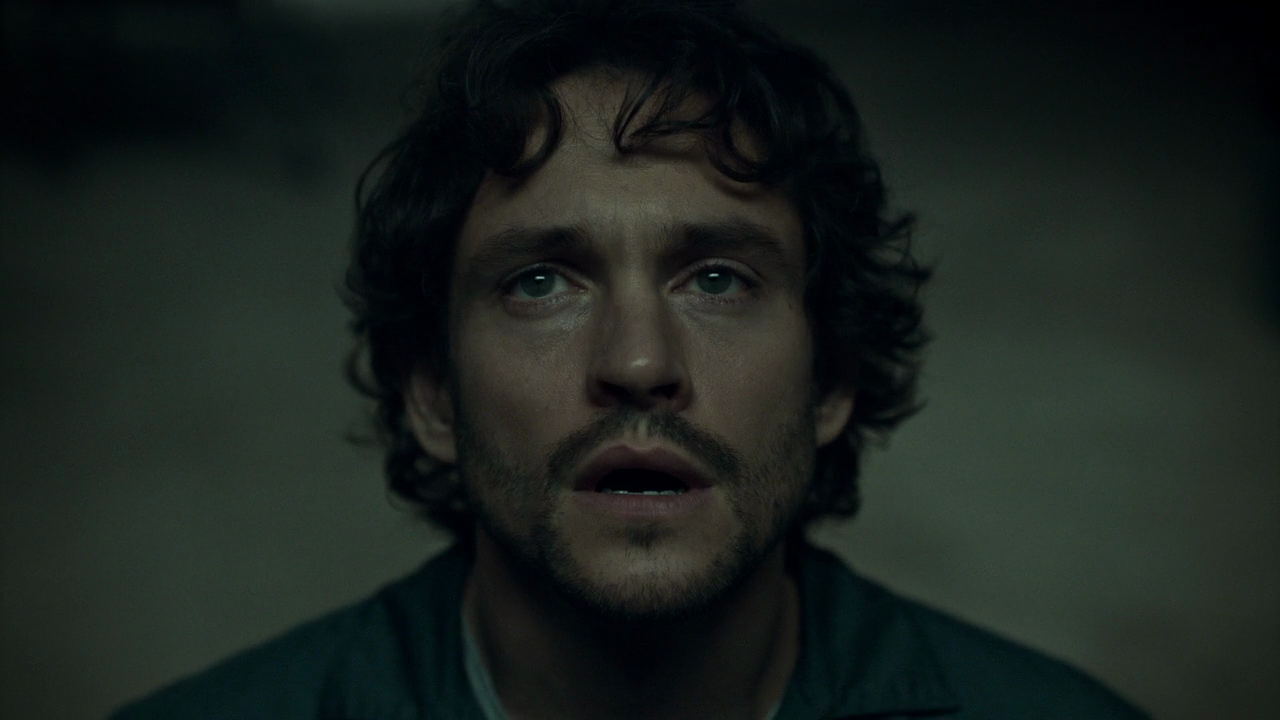
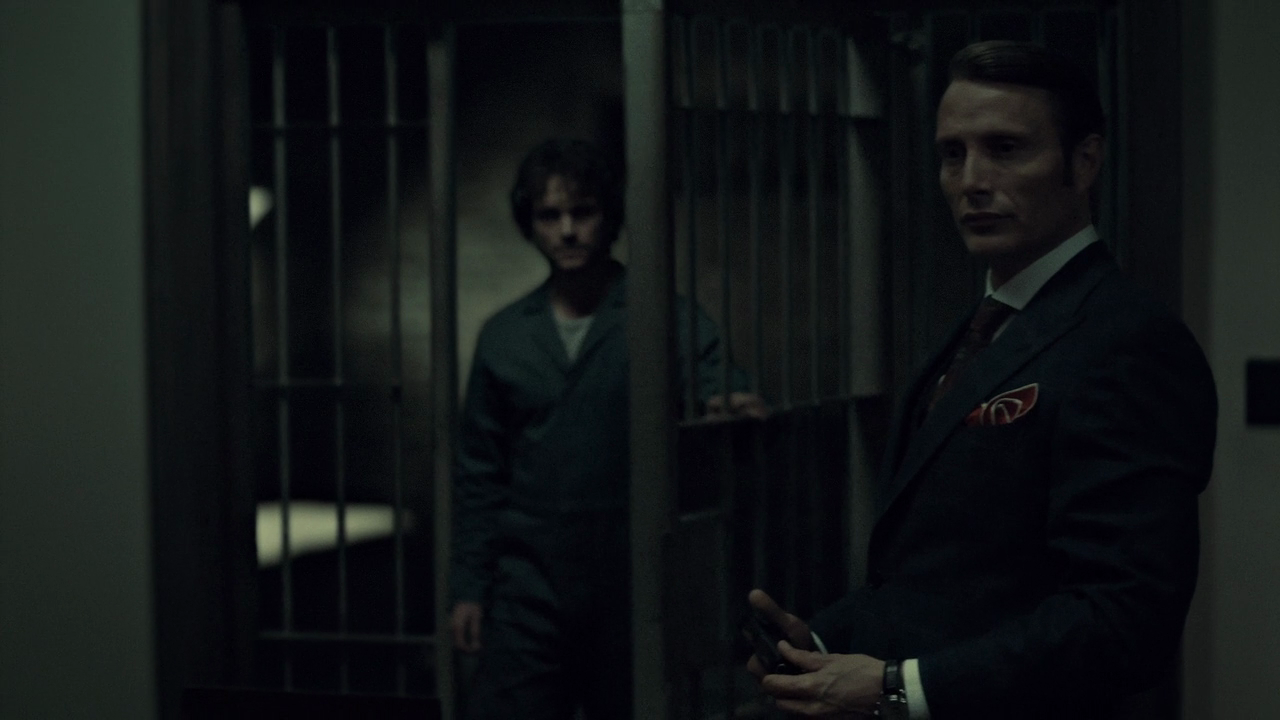
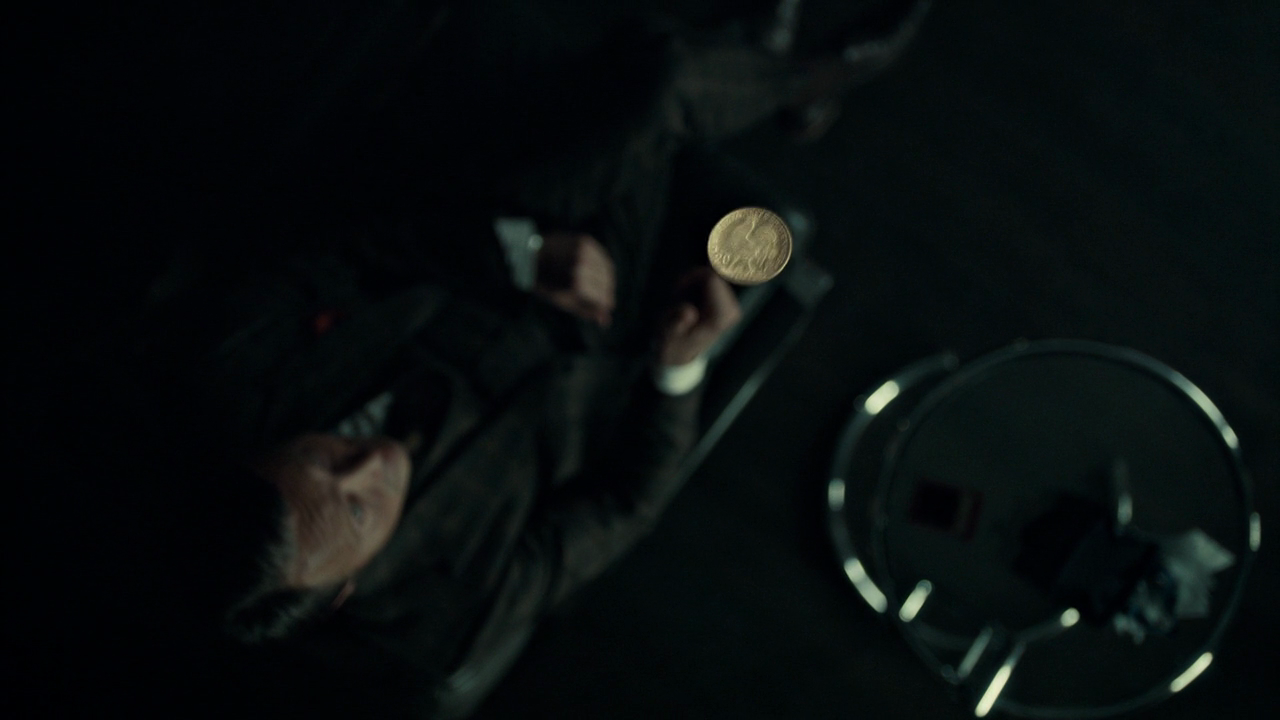
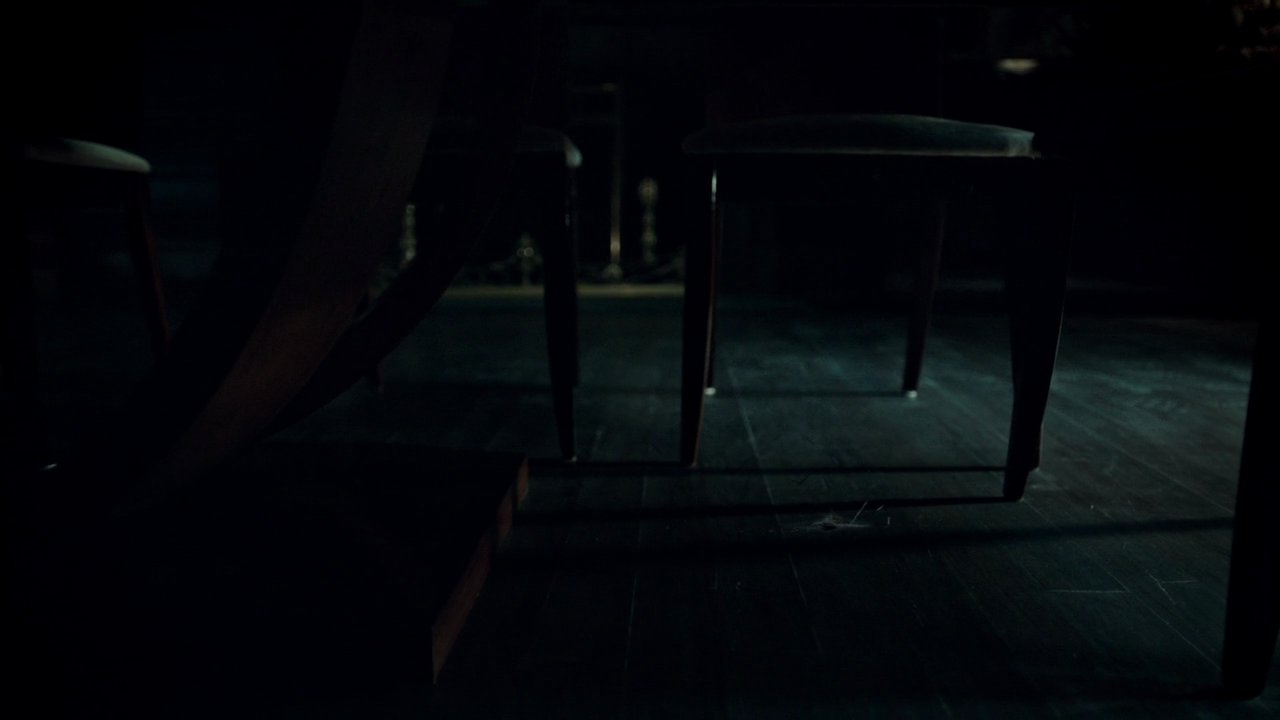
August 14, 2017 @ 3:46 pm
I think it’s possible to square what Hannibal does to Bella if we say that it’s out of his regard for Jack. The coin flip is a bit of whimsy, but it also illustrates him choosing which friendship to honor in this particular case; let one friend go out on her terms, or save another friend from something he doesn’t wish to come to pass.
August 14, 2017 @ 6:07 pm
For those who really want to be dishy
Okay, I think<.i> I got what this meant in context – kind of gossipy, possibly related to “dishing the dirt”? It’s not a meaning I’ve seen before, though, and it’s a new one on Wictionary as well.
In the UK – and on Wictionary – it’s a rather old-fashioned term for an attractive man (Susan almost certainly considered her favourite pop stars dishy, Jo probably did, Ace quite definitely didn’t), so my brain kind of skipped a track there.
August 14, 2017 @ 6:09 pm
Apologies for the HTML fail.
August 15, 2017 @ 4:11 am
I used to be quite dishy some decades ago. Or at least so I was told.
August 14, 2017 @ 10:10 pm
I’m a little surprised that you didn’t draw a parallel, either here or in the ‘World Enough and Time’ review, between Pimm’s “I can’t make the pain go away, but I can make it so it doesn’t matter” and the Mondassian surgeon’s “This won’t stop you feeling pain, but it will stop you caring about it.”
March 17, 2022 @ 6:02 pm
A late comment, but I must say I’m fascinated by how your analysis is so thematic, with little regard for the practicalities of production. I only started watching ‘Hannibal’ because of these reviews (like many, I came here for Tardis Eruditorum but stayed for the rest of the world).
I was surprised that you made no mention of the casting of Amanda Plummer as the killer of the week. As soon as I saw her face in the (highly subjective) first scene where we can recognise her, I knew that Katherine Pimms would be important, based on casting alone. It’s to your credit that you can leap over such merely practical details to stay focussed on what really matters to you. I know I couldn’t. And as a viewer, I got distracted by the appearance of a big name in a guest role. Not something I’ve spotted in ‘Hannibal’ before.
Ps: as a Brit, I also read “dishy” as a synonym for “attractive” just as I read “Pimms” as a synonym for “refreshing bourgeois Summer drink.” My problems, not yours, and I always like to collect new meanings for words.